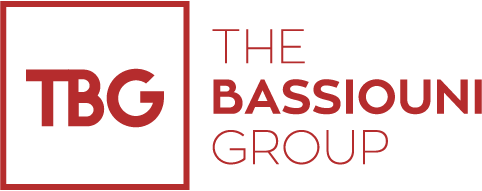EUDR (EU Deforestation Regulation): Key Facts & Updates
The EU Deforestation Regulation (EUDR) remains on track ahead of the December 30, 2025 deadline. TBG has been working closely with global corporations/multinationals since 2024 to address their EUDR obligations. Just CLICK HERE to learn more about EUDR, including the July 9th EU Parliament Vote, and CLICK HERE to get in touch with our dedicated EUDR team so we can get your compliance process underway.
Enclosed below are some key facts you need to know.
1.What is EUDR?
The EU Deforestation Regulation (EUDR), formally known as Regulation (EU) 2023/1115, is a legislative measure adopted by the European Union to combat global deforestation and forest degradation, particularly damage from the expansion of agricultural land tied to specific commodities. EUDR covers seven key commodities: cattle, cocoa, coffee, oil palm, rubber, soybeans, and wood, as well as products derived from these commodities, such as leather, chocolate, furniture, pulp and paper, printed books, and more. For more information, just send an email to our EUDR team for a free background briefing/consultation.
2. What are the EUDR obligations and requirements?
EUDR covers all relevant, in-scope products/goods derived from the seven key commodities. More specifically, companies (operators) that import to, place on, make available on or export from the EU market must address a number of key requirements:
Deforestation-Free — Companies/operators must ensure and certify that their products are deforestation-free and originate from land that was not deforested after December 31, 2020. They must also comply with the laws in the country where they were produced.
Due Diligence — Companies/operators must conduct due diligence to ensure that the production of commodities complies with the laws of the country of origin. They must submit due diligence statements (to the online registry) based on a robust risk assessment process.
Traceability — Companies/operators must collect information, documents, and data proving that the product is deforestation-free and legal, such as geolocation coordinates, quantity, country of production, etc.
3. What steps does my company need to take to get started on the EUDR journey?
The TBG Purpose/EUDR team works with companies at all stages of the EUDR journey. The first step you can take is to conduct the necessary training of internal and external stakeholders to ensure complete awareness. After training, you should undertake a scoping exercise, which will enable you to determine which products/parts to include in the EUDR data-gathering process. As part of our scope of work, the TBG Purpose/EUDR team has worked with various corporations to provide the necessary guidance and training, including live training sessions via Zoom/Teams. Just send an email, and let’s get to work.
4. What penalties will companies face if they do not comply with the EUDR?
Sanctions for non-compliance (fines, confiscations, suspension) will be enforced by requiring checks on a percentage of shipments based on the risk level of deforestation associated with the country of origin (high-standard-low). So, for example, shipments containing parts/products originating from a (potentially “high-risk) country like Malaysia may be subjected to fines, confiscation, suspension, and exclusion from public funding or contracts. EU authorities may impose potential penalties of up to 4% of a sanctioned company’s EU turnover.
5. Has the EUDR deadline changed and why did it change?
On December 4, 2024, the EU Council’s proposal of a 12-month delay was adopted. The new EUDR deadline is now December 30, 2025, for large operators and traders, and June 30, 2026, for micro- and small enterprises. The deadline changed due to lobbying by various industry groups and [raw material] exporting countries. The TBG/EUDR team closely monitors new developments to ensure that current and new clients remain compliant
6. How does TBG help companies address their EUDR needs?
TBG works closely with global corporations and SMEs/SMBs across the EUDR spectrum. Our services include supply chain engagement (customized surveys and data collection), research and analysis, due diligence statements, regulatory support, risk management, strategic advisory support, and training for internal and external stakeholders. We work closely with clients to develop their EUDR response systems, customized supplier surveys for due diligence, supplier tracking tools, and risk management frameworks.
EDITOR’S NOTE: A division of The Bassiouni Group, TBG Purpose is a leading sustainability & ESG solutions partner for global corporations, SMBs/SMEs, institutions, and governmental agencies. We provide an integrated set of solutions to enable organizations to meet their sustainability objectives in line with global reporting standards & frameworks as well as regulations such as the EUDR, CBAM, CSRD and CSDDD. From Materiality Assessments to Climate Risk Assessments to Life Cycle Assessments to Program/Strategy Development to Sustainability Reports/Report Cards, we cover all of your needs. Just CLICK HERE to get in touch with our team.

